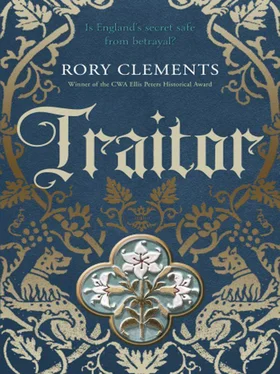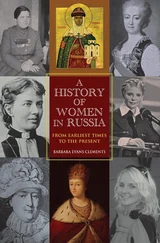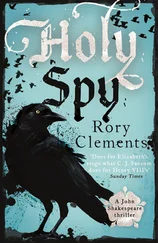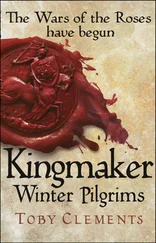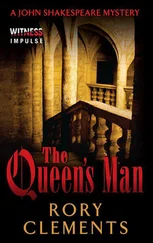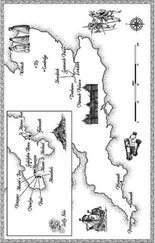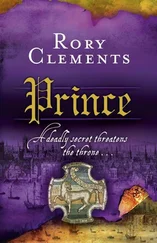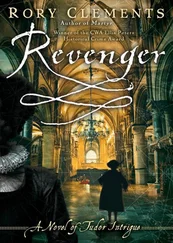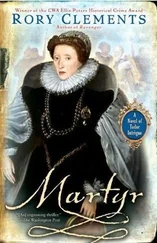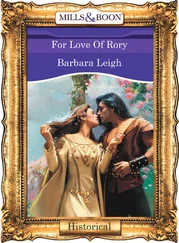Rory Clements - Traitor
Здесь есть возможность читать онлайн «Rory Clements - Traitor» весь текст электронной книги совершенно бесплатно (целиком полную версию без сокращений). В некоторых случаях можно слушать аудио, скачать через торрент в формате fb2 и присутствует краткое содержание. Год выпуска: 2012, ISBN: 2012, Издательство: John Murray, Жанр: Исторический детектив, на английском языке. Описание произведения, (предисловие) а так же отзывы посетителей доступны на портале библиотеки ЛибКат.
- Название:Traitor
- Автор:
- Издательство:John Murray
- Жанр:
- Год:2012
- ISBN:9781848544314
- Рейтинг книги:5 / 5. Голосов: 1
-
Избранное:Добавить в избранное
- Отзывы:
-
Ваша оценка:
- 100
- 1
- 2
- 3
- 4
- 5
Traitor: краткое содержание, описание и аннотация
Предлагаем к чтению аннотацию, описание, краткое содержание или предисловие (зависит от того, что написал сам автор книги «Traitor»). Если вы не нашли необходимую информацию о книге — напишите в комментариях, мы постараемся отыскать её.
Traitor — читать онлайн бесплатно полную книгу (весь текст) целиком
Ниже представлен текст книги, разбитый по страницам. Система сохранения места последней прочитанной страницы, позволяет с удобством читать онлайн бесплатно книгу «Traitor», без необходимости каждый раз заново искать на чём Вы остановились. Поставьте закладку, и сможете в любой момент перейти на страницу, на которой закончили чтение.
Интервал:
Закладка:
‘So it appears. Well, Mr Pinkney, it seems a mighty coincidence to find you here. Are you friends of Mr Ickman? Perhaps you lay fires for him.’
‘Indeed not, Mr Shakespeare. We are here because our word is our bond, as always. Small tasks for great gentlemen. No, indeed not, we are no friends of Mr Ickman, though it would be fair to say we have made his acquaintance.’
‘And where is he now?’
‘Why, I believe he is in the woods. Did he not venture into those woods yonder for his morning perambulation, Mr Cordwright, along that path?’
Pinkney nodded towards the thick woodland that stretched away from Ickman’s property.
‘Yes, sir, Provost Pinkney, I believe he did.’
‘But enough of common chatter, Mr Shakespeare,’ Pinkney said. ‘Our work here is done and we must be away. Be so good as to convey my greetings to private soldier Woode.’
Shakespeare had already noted two horses tethered to a tree close by. Pinkney and his sergeant walked towards them, mounted and rode away slowly in the direction of London, without turning back. Shakespeare watched them depart, then followed the path into the woods.
The body of Bartholomew Ickman hung from the branch of a tree, swaying gently in the breeze. Shakespeare gazed upon his grotesque face without emotion. The dead man was wearing the buttercup silk doublet he had worn in the fields of Lancashire, divining for treasure with Dee. His arms were unbound and a stool was on its side close to his dangling feet as though he had stood on it and kicked it away to take his own life. But Shakespeare knew better. He had a very good idea how Ickman had died.
Chapter 51
Dr John Dee was waiting when Shakespeare arrived back at his brother’s rooms in Shoreditch. Shakespeare glared at him with angry disdain.
The old alchemist was dressed in his flowing gown once again. He stood rigidly, with his back to the window, and looked nervous. Shakespeare wondered why he was here. He did not wish to see this man; he had enough problems of his own to contend with.
‘I was told I might find you here,’ Dee said tentatively. ‘Your Dowgate neighbours.’
‘Why are you here, Dr Dee?’
‘I heard about your home. The blaze … a terrible mishap.’
‘It was no mishap. The fire was deliberately set. It was arson, attempted murder of three adults and four children. It was a monstrous act.’
‘I know. That is why I am here. I can keep silent no longer.’
Will was out at the playhouse. Andrew and the children were in the other room with Jane. Boltfoot was here, though, eyeing Dee with wary curiosity. Shakespeare turned to him.
‘Boltfoot, please bring Dr Dee some wine. I think I wish to hear what he has to say. Sit down, Dr Dee.’
‘Thank you.’
‘But I must warn you to be straight with me. I have little patience today.’
Dee sat on the hard wooden settle. His beard was growing again and he looked much like his old self. He folded his hands in his lap, his voluminous sleeves draped across his thighs. He closed his eyes, as if summoning up some divine energy to enable him to say what had to be said. Shakespeare watched him closely, and waited.
‘Here.’ Boltfoot handed Dee a beaker of sweetened wine.
Dee opened his eyes, took the beaker, sipped it, then put it on the settle at his side.
‘What I am about to say does not come easy, Mr Shakespeare. But at the hazard of my immortal soul, I must tell you certain things.’
Shakespeare watched and listened, but said nothing.
Dr Dee produced a paper from his sleeve. ‘This is the letter you found about the person of Father Lamb. When I was at Chevening, Mr Mills showed it to me, for it meant nothing to him. He thought to try whether my intellect would fare better.’
‘And did it?’
Dee nodded his head gravely. ‘I told Mr Mills that I could not understand it, that it was all about birds and seemed meaningless. But that was a lie. In truth, I saw instantly what it meant. It was an acrostic of sorts, and the words leapt from the page at me. Look now, examine the initial letters of the verse you uncovered.’
‘Hand me the letter.’
Dee leant across and placed the paper in Shakespeare’s hands. He gazed at the hidden words that had been revealed by heat.
‘ The killing birds wait in line. The hawks edge nearer, even as golden eagles under soaring eyries dive. Malevolent dove, evil nightjar, baleful ibis and twisted hoodcrow toss overhead, preying on insects, shrews or newts. Let dogs fester, orphans rot, ere rooks lay down and die .’
Shakespeare took a quill from his brother’s table and dipped it in an inkhorn. He scratched the initial letters of the message on a piece of blank paper, then examined what he had written:
TKBWILTHENEAGEUSEDMDENB
IATHTOPOISONLDFORERLDAD.
The letters seemed to have neither sense nor reason, except for one word that stood out like the back-end of a boar among sows.
‘I see the word poison in there, nothing more. Explain to me, Dr Dee.’
Dee shifted close and placed his long forefinger on the paper, smudging the wet ink.
‘At the beginning and end there are nulls, blanks — letters that mean nothing. That is why Mills could not see it. Reading from the H, the first two words become clear — Heneage used . You then have four sets of initials for names: MD, EN, BI and TH. After that, it clearly says to poison LD .’
‘LD — Lord Derby.’
‘Indeed.’
‘And the four sets of initials?’
‘You know them as well as I do, Mr Shakespeare.’
‘Say the names to me. I wish to hear you say the names.’
‘Very well. MD, Michael Dowty; EN, Eliska Novakova; BI, Bartholomew Ickman; and TH, Thomas Hesketh.’
EN. Eliska Novakova. Evil nightjar .
‘Then it was as I thought. They were all in it, working together.’
‘On the orders of Sir Thomas Heneage, Chancellor of the Duchy of Lancaster.’
‘Political murder.’
If this letter had succeeded in reaching Lamb’s Jesuit masters in Rome, the enemies of England would have spread it abroad with glee and rejoicing. No more could England claim moral authority over King Philip of Spain and his despised political assassinations.
‘My question, Dr Dee, is how you were able to see this so clearly from a rag-tag scrawl of letters?’
‘Because I already knew of the conspiracy, Mr Shakespeare. And Father Lamb heard it from my lips.’
‘You told Lamb? In God’s name, why?’
‘Because I wanted to stop it. I wanted to save the earl. I had already done far too much harm, and I was overcome with guilt and remorse. I still am, Mr Shakespeare. That is why I am here today. I seek to expunge my sin. I am an old man. I do not have long to find redemption.’
‘So you were part of the conspiracy, but had second thoughts: is that what you are saying?’
‘No. No, I never meant murder against any man.’
‘What, then, was your sin?’
Dee sighed deeply and his tight jawline throbbed. For a moment it occurred to Shakespeare that he might weep.
‘My sin, Mr Shakespeare, was my involvement in the original plot to ensnare the earl, the plot that ended with poor Richard Hesketh’s cruel death on the scaffold. Richard was my good friend of many years’ standing, and I used him most foully.’
Shakespeare threw a questioning glance.
‘You wish to know why I betrayed my friend. It was not intentional. It all began when Heneage invited me to dine with him in the early summer of last year. The talk turned to my time in Prague and he asked me who I knew there. I mentioned several names, including Richard. Heneage seized on the name and questioned me about him.
‘I thought no more about it, but Heneage called me to his home at the Savoy again a few days later and told me about the Privy Council’s fears that Lord Strange — Lord Derby as he would become — was a crypto-Catholic, and that he was manoeuvring secretly against the Queen. Heneage told me the Council wished to compromise him, bring his plans out into the open and thus dash his hopes of ever succeeding to the throne. To this end, they had conceived a scheme. A letter would be brought to him from Catholics in Prague, begging the earl to be their figurehead. If he did not reveal the letter to Queen and Council, he would be proved a double-dealer, just like Mary of Scots before him. It was suggested that Richard Hesketh should bring the letter to the earl, as if it had come from exiles. Heneage needed my assistance, though, for Richard would trust me above all men. If he did this thing, all former charges against him would be dropped, I was told, and he would be allowed to live unmolested with his family once more. As for me, in return for my small help, I would be offered a living, perhaps Winchester or the collegiate church of Manchester.’
Читать дальшеИнтервал:
Закладка:
Похожие книги на «Traitor»
Представляем Вашему вниманию похожие книги на «Traitor» списком для выбора. Мы отобрали схожую по названию и смыслу литературу в надежде предоставить читателям больше вариантов отыскать новые, интересные, ещё непрочитанные произведения.
Обсуждение, отзывы о книге «Traitor» и просто собственные мнения читателей. Оставьте ваши комментарии, напишите, что Вы думаете о произведении, его смысле или главных героях. Укажите что конкретно понравилось, а что нет, и почему Вы так считаете.
